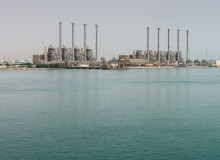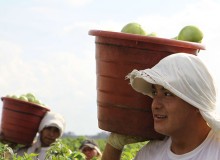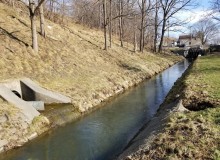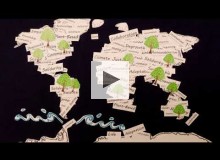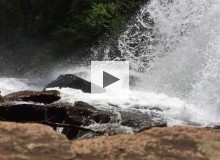Learn more about the talented team of students selected to be 2017-2018 Planet Forward Correspondents, and be sure to click through to see their full profiles:
-
Mariam Abdallah, SUNY Plattsburgh (Plattsburgh, New York): A junior studying broadcast journalism, with a minor in political science, she hopes to become an international correspondent.
-
Katherine Baker, Columbia University (New York, New York): A graduate candidate seeking an MPH in Environmental Health Science, who hopes to focus her work on sustainable food systems and clean water.
-
Gillian Elizabeth Daley, Florida International University (Miami, Florida): A sophomore in International Relations and Political Science, with a strong interest in the environmental changes seen in the ocean.
-
James Ian Duffy, Rutgers University (New Brunswick, New Jersey): A senior studying Ecology, Evolution and Natural Resources, who says our challenge, moving forward, is to mature into the role of sustainable “planetary planners.”
-
Conner Elliott-Knaggs, Elon University (Burlington, North Carolina): A senior in Policy Studies, minoring in Human Services, he finds a challenge in getting engagement in sustainability issues and hopes to inspire action through his work.
-
Terrius Harris, University of Mississippi (Oxford, Mississippi): A senior studying International Business Administration, French, Environmental Studies, International Studies; and Entrepreneurship, is interested in sharing the stories of indigenous communities that are losing their homes because of climate change.
-
Alaine Johnson, Yale-National University of Singapore (Singapore): A senior in Environmental Studies is interested in effects from climate change-related flooding and the exploitation of animals and the issues stemming from it.
-
Austin Keating, Northwestern University (Evanston, Illinois): A graduate student in Journalism, focusing on Interactive Storytelling, said we should look at the shift in optimum growing conditions for plants due to climate change - and what that means for agriculture and food supplies.
-
Dakotah Kimbrough, Warren Wilson College (Asheville, North Carolina): A senior in Environmental Policy, he would like to focus on the cultural and individual disconnect from the natural environment that has arisen in our age.
-
Matilda Kreider, The George Washington University (Washington, D.C.): A sophomore in Political Communication is interested in public lands conservation and outdoor recreation, which, she says, is at the core of the American environmental story.
-
Maizy Ludden, Syracuse University (Syracuse, New York): A junior in Biology/Geology wants to look at the diverse stories behind how different cultures connect to the environment physically, emotionally, and psychologically.
-
Navya Pothamsetty, University of California, Berkeley (Berkeley, California): A sophomore in Public Health and Public Policy hopes to highlight the stories of people who are working toward ways to make the planet better, and also what you can do as an individual to help the environment.
-
Hailey Smalley, SUNY College of Environmental Science and Forestry (Syracuse, New York): A junior in environmental studies, she said she believes that we can combat climate change through continued small scale efforts.
-
Olivia Urbanski, Loyola University Chicago (Chicago, Illinois): A senior with a dual major of Environmental Studies and Global and International Studies, she wants to share the different ways communities are confronting climate change and how they are working together — far and wide — to make their communities and nations more sustainable.
- Gavin Winter, Northeastern University (Boston, Massachusetts): A junior in Chemical Engineering, and coming from a science background, he’s interested in energy security issues, and issues with sourcing of materials for next-generation technologies.
All Correspondent work will be featured here. Check back frequently!



